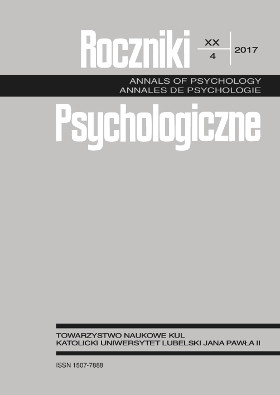Polska adaptacja Kwestionariusza Dobrostanu (Psychological Well-Being Scales) Caroll Ryff
Polish adaptation of Carol Ryff’s Psychological Well-Being Scales
Author(s): Dominika Karaś, Jan CieciuchSubject(s): Social Sciences, Psychology, Developmental Psychology, Clinical psychology
Published by: Towarzystwo Naukowe KUL & Katolicki Uniwersytet Lubelski Jana Pawła II
Keywords: well-being; eudaimonia; PWBS questionnaire
Summary/Abstract: The Psychological Well-Being Scales (PWBS) is a questionnaire designed by Ryff (1989) to mea-sure six dimensions of eudaimonic well-being: self-acceptance, positive relations with others, autonomy, environmental mastery, purpose in life, and personal growth. Translated into several dozen languages, this questionnaire is a commonly used instrument for measuring well-being. The article presents the effects of work on the Polish adaptation of two versions of the PWBS: full (84-item) and short (18-item), conducted as a series of four studies with a total sample of 2,035 participants aged 13 to 78.The results confirmed the reliability of the full version of the PWBS and the six-factor structure of well-being. They also confirmed the criterion validity of the questionnaire, reflected in correlations with validation instruments.
Journal: Roczniki Psychologiczne
- Issue Year: 20/2017
- Issue No: 4
- Page Range: 815-835
- Page Count: 21
- Language: Polish

